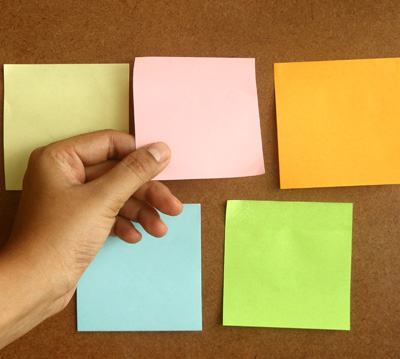Have you ever had ‘one of those days?’ Where you had too many tasks to finish and left feeling you did not accomplish enough? What changes could you make to work smarter? It all goes back to skilful time management, which is the cornerstone of efficient working. You should take a few minutes to read the following steps that will help you make the most of your time and successfully tackle daily tasks, while maintaining a healthy work-life balance.

After you wake up, drink water so you rehydrate, eat a good breakfast to replenish your glucose, and then set goals.

This list not only helps you arrange your tasks in order of priority, it also helps you manage your stress levels and give you a great sense of satisfaction by crossing off each task upon completion.

It is important to set SMART (Specific, Measurable, Achievable, Realistic, Time bound) objectives, this will put things into perspective and knowing the end goal will motivate you to do more than has been requested.

Switching from task to task quickly does not work. Studies have shown multitasking hinders accuracy; focus on one thing at a time. Remember, you are not a machine.

If it is not required as part of your job, forget the existence of Social Media. Facebook, Twitter, Instagram and YouTube can quite easily become a prominent enemy of progress if misused. Develop the habit of using these platforms during breaks and out of office hours.

Pick two or three times during the day when you are going to use your email. Checking your email constantly throughout the day creates a ton of noise and affects your productivity. Emails are not meant for conversations. Do not reply more than twice to an email. Pick up the phone instead.

He who does not learn from his mistakes is doomed to repeat them. The input of more experienced colleagues early on in the process can guide you towards a more successful path.

We all have different times of the day where we work best during, identify your most productive hours and schedule your work around these key timings.

We are not designed to work constantly for long periods of time. Work in 60 to 90 minute intervals. Your brain uses up more glucose than any other bodily activity. That is why you feel so burned out after long meetings. So go for a walk, have a snack, do something completely different to recharge, these activities will clear your mind.

Allow 10-15 minutes at the end of your week to evaluate the week you have had and pre-organise your schedule for Sunday. This will help you avoid losing time the next morning racking your brain cells try to re-track the pending tasks from the previous week.